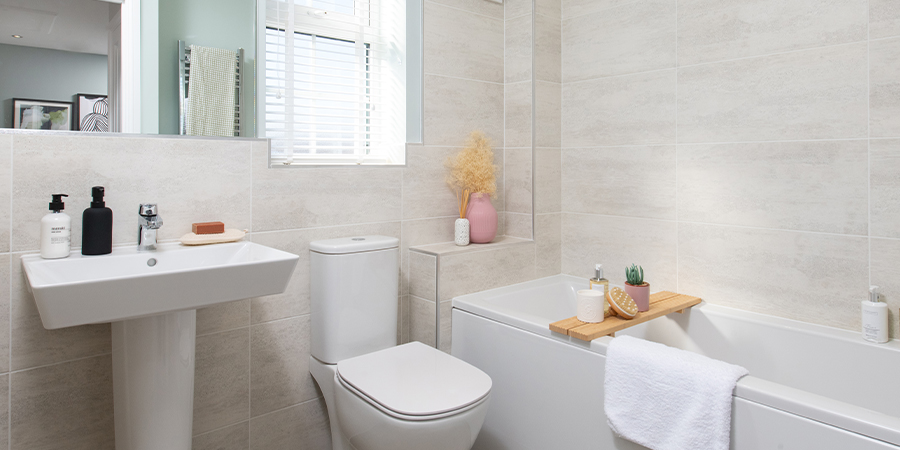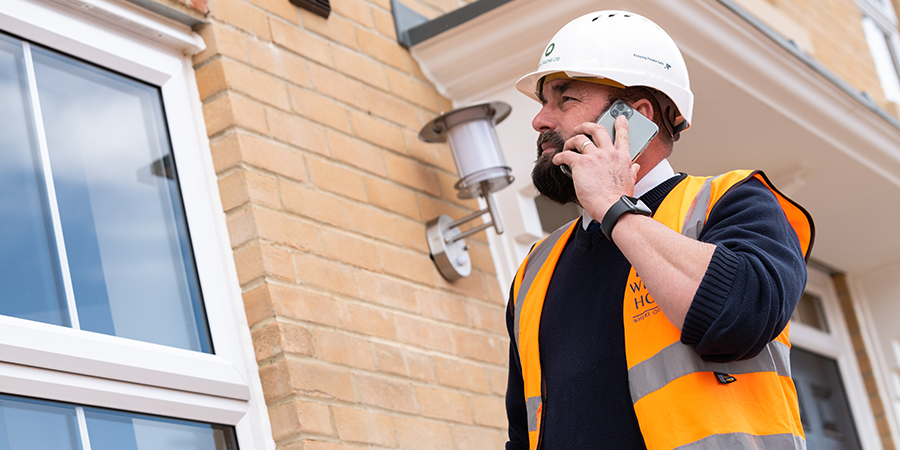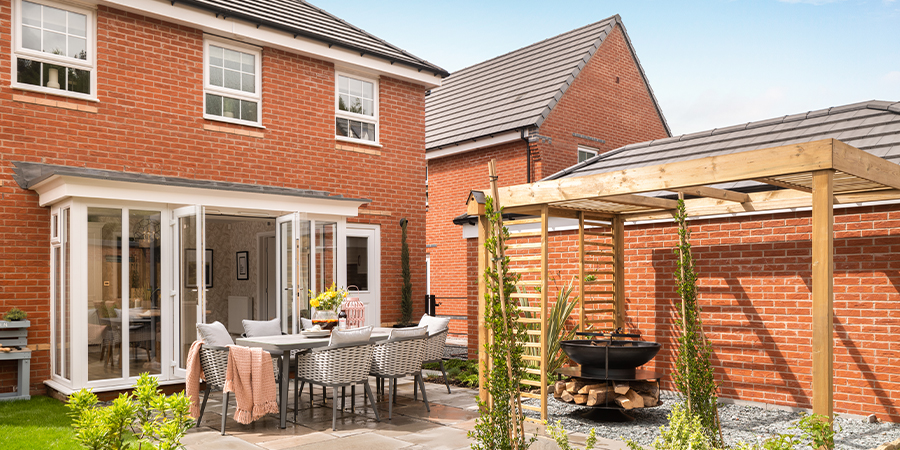
This article will discuss the downsizing process – from sorting through your belongings to moving into your new home and will help you explore your options and consider your next steps.
What is downsizing?
We’ve mentioned some reasons to downsize above, but what does it really mean? Downsizing is simply the process of moving from a larger home into a smaller property.
Is downsizing right for you?
1. What type of home do you want?
Think about the number of rooms you’ll need, the outside space you’d like, and even if you want to trade from a two-story to a bungalow. Downsizing is your big opportunity to find a home that ticks all your boxes.2. What do you want from your local area?
Are you looking for green spaces? A supportive local community? Looking to move closer to family and friends? Or maybe you’ve changed your mind about country living since the cities opened up again post-pandemic. These are all important things to keep in mind before you start your search.3. What are the amenities like?
If you want local shops and cafes within walking distance, that’ll help you narrow down your options.4. What is transport like?
Public transport links are often useful for venturing into the city or heading out to meet friends. If you’re a driver, local roads and distance to motorways may be just as important.5. Consider your existing home situation
Everyone’s situation is different, and you’ll need to think about the financial practicalities of moving. Are you looking to move to a more expensive area? How much equity do you own in your current home? As with anything to do with homes, making a considered and practical decision is a must.6. Are you happy to accept the costs of moving?
Stamp duty, estate agent fees, conveyancing charges, and removals. Moving house inevitably brings some costs with it. Make sure you factor these into your decision-making and keep them in mind when you’re setting your budget.
3 benefits of downsizing
1. Boost your finances
For some, downsizing homes can release equity and give finances a boost. For others, a smaller property may be more affordable to heat and maintain – especially in the current economy.A brand-new David Wilson home could be up to 63% cheaper to run than an older home, meaning you could save more than £3,100 per year on your energy bills*. Every new home we build has been designed with the future in mind. We use innovative and smart technologies to make your new home more economical, comfortable, and enjoyable to live in.
What’s more, when you downsize, you won’t need to think about Capital Gains Tax . For most people, if you’re downsizing your primary residence from a larger and presumably more expensive property, to a smaller and less expensive one, the purchase will be exempt from Capital Gains Tax.
But keep in mind that downsizing also comes with costs, as any home move would. You’ll need to budget for moving costs, surveys, and solicitors. While downsizing may save you money in the long run, there will be some initial costs you’ll need to cover.
2. Create a space that’s just for you
Big homes can be tiresome to clean, run, and maintain, with separate rooms for everything. Many people choose to downsize as it affords them the opportunity to personalise their home to their individual needs, creating multi-use spaces that satisfy everything. What’s more, living in a small er space can help you prioritise your passions and showcase your hobbies, interests, and personal style.3. Simplify your life
A smaller home, fewer belongings, and more energy-efficient features can make day-to-day life much simpler and easier to handle. And it can cut down the time you dedicate to household chores.Whether it’s to be closer to family and friends, or to free up more time and money, everyone has their own reasons for wanting to downsize. It is important to consider your unique priorities and financial situation (now and in the future) so that, whatever decision you ultimately make, you’re doing it with open eyes and for the right reasons.

The process of downsizing: 6 key steps
From working out your budget, to stepping through the front door of your new home, here are the main steps you’re likely to follow when downsizing your home. Should you decide to buy a brand-new David Wilson home, we’ll be here to support you at every stage of the process.1. Consider the home and life you want
Think about your personality, the number of rooms you need to have, and how close you want to be to family and friends. Where is likely to feel like home for you? This process of prioritisation is a key step and will help you decide whether you want something smaller next door, or a big move a few hours away. It’ll also help you start to plan your budget.2. Do your sums
There are a lot of numbers to think about at this stage, so determining your budget is a great place to start.
• Have your property valued
Before you consider buying your next home you should get your existing home valued. You may want to get more than one valuation so you can be confident you’re pricing your home correctly.
• Talk to a mortgage adviser
Will you need a new mortgage? In which case, you’ll need to work out what’s affordable. If considering a David Wilson home, we can put you in touch with a New Homes Mortgage Adviser who’ll be able to help you work out a budget.
• What’s your equity? What are the fees you’ll need to consider?
It’s important to determine the equity you have in your current home and whether that covers the cost of your new home. If not, you’ll need to consider how much a lender will let you borrow. You should also factor in additional things like Stamp Duty, solicitor’s fees and removal costs.
• Research homes you would like to buy
Have a good idea of what you want in your new home. How many rooms would you like? How much space do you need? Are the shops close by? Is it close enough to your family and friends? Do you have an idea of the look and type of home you think you’d be happy in? If so, it may be time to take the next step…
3. Put your home on the market
A key stage in your downsizing journey starts with putting your home up for sale. But before you get that huge job done, there are a few smaller tasks to work through in order to ensure a successful sale:
• Downsize your possessions
Sorting through your belongings and getting rid of things you no longer need is one of the first steps you’ll need to take. As well as making the move easier overall, it will also give you a good idea of how much space you’ll need in your new home.
• Improve your home to increase its appeal
These could be small tweaks, like freshening up the paint in certain rooms, or taming the garden outside. When you have your home valued, they’ll often suggest repairs and updates that can be made in order to maximise your appeal.
• Choose an estate agent
If you’re looking to sell quickly, you can even choose two estate agents to sell your home. Look out for expertise and understanding of the local market.
• Map out your timeline
A quick sale could mean you need to find your new home quickly – or at least make temporary accommodation arrangements. It’s important to map out a clear timeline for yourself, so you know what you’re aiming towards and can check it’s realistic.
4. Find your new home
It’s time to take the research you’ve already done and get out there. Property sites like Rightmove and Zoopla have many listings and lots of valuable information. It’s also worth registering with estate agents as they may well have properties not yet listed online which they can show you. You can also explore our latest developments and range of brand-new, high-quality modern homes on the David Wilson website.
5. Complete your move
Once you’ve found your ideal home, you’ll need to make your offer. If you decide to move with David Wilson, you’ll pay a reservation fee, and we’ll take your property off the market.
And remember, whether you’re looking for something smaller, more energy-efficient, or to be closer to friends and family, at David Wilson Homes, we have spacious, thoughtfully designed homes ranging from two bedrooms to five bedrooms on quality developments all over the UK.

Why downsize with us?
Buying a thoughtfully designed home from David Wilson Homes could be a great option if you’re looking to downsize. Our brand-new homes are specially designed for modern life with open-plan layouts, modern appliances and generous dimensions. Cost savings come built-in, with highly thermally efficient insulation, argon-filled double-glazing, and water efficient kitchen and bathroom fittings.
You’ll also enjoy the peace of mind that comes with knowing that your home is built to the highest modern standards and comes with a 10-year NHBC Buildmark warranty. As such, you won’t need to worry about hours of maintenance or any big construction issues. A David Wilson home could be your hassle-free way to move forward.

If you’d like to read more about moving to a smaller home, click here.
Discover our new developments – you’re sure to find something you love.
*Indicative figures, based on HBF "Watt a Save" report published February 2023.



